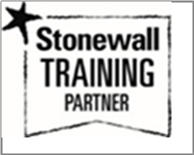Supporting Gender Variant Children and Trans young people in Schools and Settings
28 November 2017
Thanks to the dedication of staff in schools and settings and changes in legislation more Lesbian, Gay, bisexual and Trans (LGBT) young people than ever are able to be themselves at school.
However the findings of the Stonewall School Report 2017 indicates that for Trans pupils, the findings are alarming: nearly two in three Trans pupils are bullied for being LGBT at school, one in ten have received death threats, and more than two in five have tried to take their own lives.
Under the 2010 Equality Act it is unlawful for schools to treat pupils less favourably because of gender reassignment. Whilst a growing number of Kent schools are supporting their Trans pupils, too many are not equipped to do so and are less aware of the law. It is vital that this is remedied as a matter of urgency.
The Tavistock and Portman NHS Foundation Trust saw a 104% increase (697 to 1419) in the number of children and young people referred to their Gender Identity Development Service in 2016/17, when compared with 2015/16, there was a further 42% increase to 2,016 referrals in 2016-17.
“There is no single explanation for the increase in referral figures, but we do know in recent years that there has been significant progress towards the acceptance and recognition of transgender and gender diverse people in our society. There is also greater knowledge about specialist gender clinics and the pathways into them.” Dr Polly Carmichael, Gender Identity Development Service Director and Consultant Clinical Psychologist.
This month, The Church of England has updated Valuing All God’s Children: Guidance for Church of England schools on challenging homophobic, biphobic and transphobic bullying to include Gender Variant children and Trans young people. In the guidance, the archbishop of Canterbury, Justin Welby, warns that homophobic, biphobic and transphobic bullying causes “profound damage leading to higher levels of mental health disorders, self-harm, depression and suicide”. The guidance goes on to say that “Children should be afforded freedom from the expectation of permanence. They are in a ‘trying on’ stage of life, and not yet adult and so no labels need to be fixed. This should inform the language teachers use when they comment, praise or give instructions. It may be best to avoid labels and assumptions which deem children’s behaviour irregular, abnormal or problematic just because it does not conform to gender stereotypes or today's play preferences.”
To raise awareness of the inclusion of Gender Variant children and Trans young people in our schools the Inclusion Support Service Kent (ISSK) introduced the Kent’s Trans* Inclusion Guidance for Schools and Settings (DOCX, 3.0 MB) earlier this year. The guidance has now been updated in line with current developments in Transgender inclusion and is available on Kelsi
ISSK also provide training though CPD online - Supporting Gender Variant children and Trans* young people in settings and schools - the next session is being held at Oakwood House on 29 January. Please book through CPD online
Contact Details
Gillie Heath, Manager
Telephone: 03000 41 70 93
Mobile: 07880 784528
Email: Gillie.Heath@kent.gov.uk

